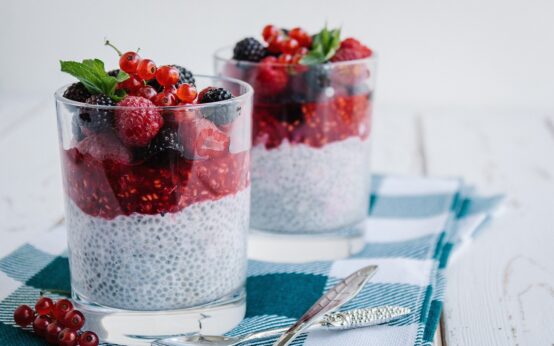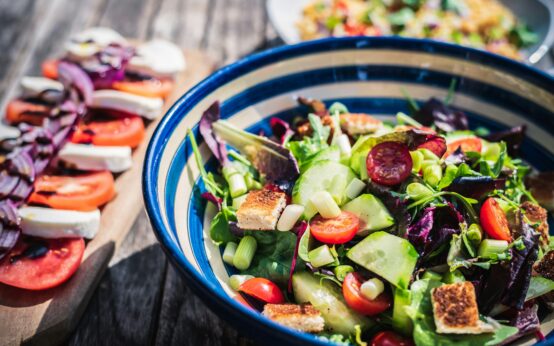Have you ever wondered how what you eat can influence how long and how well you live? It’s a question that many of us ponder as we start to appreciate the profound connection between our diet and aging. In this friendly exploration, we’ll uncover the remarkable ways our daily food choices can shape the aging process and potentially add more life to our years. By the end of this article, you’ll gain a clearer understanding of how your diet plays a crucial role in maintaining vitality and longevity.
The Link Between Diet and Aging
Aging is an inevitable part of life, but the rate at which we age and how we experience it can vary greatly depending on our lifestyle, particularly our diet. Your diet influences aging at multiple levels by affecting everything from your cells to your overall health and longevity.
Cellular Impact of Diet
At the cellular level, the food you eat can play a significant role in how your cells age. Nutrients in your diet may either contribute to cellular damage or help in cellular repair and regeneration. Nutrients like antioxidants combat oxidative stress and support cell health, which helps in delaying the aging process.
Dietary Patterns and Longevity
Several studies have shown that certain dietary patterns are linked to increased longevity. For example, the Mediterranean diet, rich in fruits, vegetables, healthy fats, and whole grains, has been associated with a reduced risk of many age-related diseases. This pattern emphasizes balance and variety, which are crucial for long-term health.
Key Components of a Longevity-promoting Diet
When you think about adapting your diet to promote longer life, focus on the inclusion of specific foods and nutrients that support healthy aging. Let’s dive deeper into these vital components.
Antioxidant-rich Foods
Antioxidants are powerful substances that protect your cells from damage caused by free radicals, which are unstable molecules that can accelerate aging and contribute to disease development. Foods high in antioxidants include:
- Berries (blueberries, strawberries, raspberries)
- Dark chocolate
- Pecans
- Artichokes
- Kidney beans
Incorporating a variety of these foods into your diet can help maintain cellular health and stave off premature aging.
Omega-3 Fatty Acids
Omega-3 fatty acids are crucial for brain and heart health and have been linked to reduced inflammation, which is associated with aging. Good sources of omega-3s include:
- Fatty fish (salmon, mackerel, sardines)
- Chia seeds
- Flaxseeds
- Walnuts
Including omega-3 rich foods in your diet can help support cognitive function and cardiovascular health as you age.
Fiber-rich Foods
Fiber is essential for a healthy digestive system, helps in maintaining a healthy weight, and may reduce the risk of heart disease, cancer, and type 2 diabetes. Foods high in fiber include:
- Whole grains (oats, brown rice, quinoa)
- Legumes (beans, lentils, chickpeas)
- Fruits (apples, bananas, pears)
- Vegetables (broccoli, carrots, Brussels sprouts)
Integrating fiber-rich foods into your meals can promote gut health and assist in managing age-related health conditions.
Polyphenols
Polyphenols are plant compounds that offer a range of health benefits, including anti-inflammatory and antioxidant effects. They are prevalent in:
- Green tea
- Red wine
- Dark chocolate
- Grapes
- Apples
Consuming polyphenol-rich foods can help reduce inflammation and protect against chronic diseases associated with aging.

Foods to Limit for Better Aging
While including beneficial foods is important, it’s equally crucial to be mindful of certain foods that may accelerate the aging process. Reducing or eliminating these from your diet can have a positive impact on your overall health and longevity.
Refined Sugars
High sugar intake can lead to obesity, increase the risk of heart disease, and accelerate the formation of advanced glycation end products (AGEs), which can damage skin, cartilage, and other tissues. It’s advisable to limit:
- Sugary beverages (sodas, sweetened teas)
- Desserts and baked goods
- Sugary cereals
- Candy and chocolates with added sugars
By reducing refined sugars, you promote healthier skin and reduce the risk of chronic diseases.
Processed Foods
Processed foods often contain unhealthy levels of salt, sugar, and preservatives. Regular consumption can contribute to inflammation, weight gain, and other health issues. Common processed foods include:
- Packaged snacks (chips, crackers)
- Processed meats (bacon, sausages)
- Ready-to-eat meals
- Fast food items
Opt for whole, unprocessed foods to minimize intake of potentially harmful additives.
The Role of Hydration in Aging
Staying adequately hydrated is vital for your body’s functioning and can have a significant impact on how you age. Dehydration can lead to dry skin, fatigue, and impaired cognitive function.
Hydration Tips for Healthy Aging
- Aim to drink at least 8 cups (2 liters) of water a day.
- Consume hydrating fluids like herbal teas, broths, and water-rich fruits and vegetables (cucumbers, watermelons, and oranges).
- Limit caffeinated and alcoholic beverages as they can contribute to dehydration.
Maintaining proper hydration supports digestion, skin health, and energy levels.

Mindful Eating and Longevity
Mindful eating practices can help you develop a healthier relationship with food, reducing overeating and promoting more balanced nutritional choices.
Tips for Mindful Eating
- Eat slowly and savor each bite to fully enjoy the flavors and textures.
- Listen to your body’s hunger and fullness cues to avoid overeating.
- Focus on whole, nutritious foods that provide lasting energy and satisfaction.
By embracing mindful eating, you may enhance your dietary habits and contribute to a longer, healthier life.
Emerging Research on Diet and Aging
Recent studies continue to unfold the complex relationship between diet and aging, introducing new insights and opportunities to improve longevity.
Intermittent Fasting and Caloric Restriction
Research shows that intermittent fasting and caloric restriction can have positive effects on aging. These practices may enhance metabolic health, reduce oxidative stress, and improve longevity.
- Intermittent Fasting: Involves cycling between periods of eating and fasting. Common approaches include the 16/8 method, where you fast for 16 hours and eat during an 8-hour window.
- Caloric Restriction: Entails reducing calorie intake by approximately 20-30% while maintaining nutrient adequacy, which has been shown to extend lifespan in various species.
Before making significant dietary changes, consult with a healthcare professional.

Creating Your Longevity-focused Diet Plan
Designing a diet that promotes healthy aging involves thoughtful consideration of what you eat and how you eat it. Here are some tips to help you create your personalized plan:
Weekly Meal Planning
- Incorporate Variety: Include a mix of fruits, vegetables, whole grains, healthy fats, and proteins.
- Balance Macronutrients: Ensure a good balance of carbohydrates, proteins, and fats at each meal.
- Prepare Ahead: Plan and prep meals to reduce reliance on processed foods.
Sample Meal Plan
| Meal | Food Options |
|---|---|
| Breakfast | Overnight oats with berries and chia seeds |
| Snack | A handful of walnuts and an apple |
| Lunch | Quinoa salad with chickpeas, spinach, cucumbers, and a drizzle of olive oil |
| Snack | Carrot sticks with hummus |
| Dinner | Grilled salmon with steamed broccoli and sweet potato |
By organizing your meals around whole, nutrient-dense foods, you support your body’s natural aging defenses.
The Psychological Benefits of a Healthy Diet
Eating well not only affects physical health but also mental wellness. A nutrient-rich diet can improve mood, cognitive function, and overall mental health.
Mental Health and Nutrition
Nutritious diets have been linked to lower rates of depression and anxiety, as well as improved memory and cognitive function, underscoring the importance of mental wellness as you age.
Final Thoughts: Living Longer and Healthier
While we can’t stop the aging process, we can certainly influence how we experience it through our diet. By choosing foods that support cellular health, reduce inflammation, and provide essential nutrients, you can enhance your quality of life and potentially increase your lifespan. Remember, it’s not just about living longer, but living well. So, why not start today? Make the connection between your diet and your longevity a pivotal part of your life’s journey.

 Tips For Mindful Eating: A Guide To Healthy Relationships With Food
Tips For Mindful Eating: A Guide To Healthy Relationships With Food  How To Create A Balanced Meal Plan For Optimal Health
How To Create A Balanced Meal Plan For Optimal Health  Top 5 Superfoods To Include In Your Diet
Top 5 Superfoods To Include In Your Diet  How To Choose The Right Vitamins And Supplements
How To Choose The Right Vitamins And Supplements  Effective Ways To Prevent Chronic Illness Through Diet
Effective Ways To Prevent Chronic Illness Through Diet  How To Age Gracefully: Tips For A Healthier Lifestyle
How To Age Gracefully: Tips For A Healthier Lifestyle  How To Create A Skincare Routine For Oily Skin
How To Create A Skincare Routine For Oily Skin  The Best Ingredients For Anti-Aging Skincare
The Best Ingredients For Anti-Aging Skincare  10 Skincare Myths That Are Wrecking Your Glow—Debunked by Experts
10 Skincare Myths That Are Wrecking Your Glow—Debunked by Experts  Natural Skincare 101: Everything you Need to Know
Natural Skincare 101: Everything you Need to Know  The Ultimate Guide To Sunscreen: What You Need To Know
The Ultimate Guide To Sunscreen: What You Need To Know  Best Anti-Acne Products: A Comprehensive Buyers Guide
Best Anti-Acne Products: A Comprehensive Buyers Guide